Treating Complex Trauma Clients at the Edge -How Brain Science Can Inform Interventions – Frank Anderson
Original price was: $119.99.$31.00Current price is: $31.00.
Treating Complex Trauma Clients at the Edge -How Brain Science Can Inform Interventions – Frank Anderson has the same quality as the author’s salapage.
Salepage link: At HERE. Archive:
- Faculty:
- Frank Anderson
- Duration:
- 2 Hours 6 Minutes
- Format:
- Audio and Video
- Copyright:
- Mar 22, 2018
Description
We often get shaken and lose confidence in our approach when a client’s trauma response edges into seemingly uncontrollable dynamics of rage, panic, or suicidal desperation.
Watch Frank Anderson, colleague of Dr. Bessel van der Kolk and Dr. Richard Schwartz, as he provides an essential road map for treating relational trauma cases. Explore the neurobiological processes of hyperarousal and parasympathetic withdrawal and the underlying symptoms.
Watch now and you will also learn various therapeutic techniques and interventions that can be integrated with psychotherapy practices to help soothe your clients’ trauma.
Handouts
| Manual – Treating Complex Trauma Clients at the Edge (1.91 MB) | 16 Pages | Available after Purchase |
Outline
Experiential Treatments – Integrating neuroscience and psychotherapy
- Necessity of utilizing physical, emotional and relationship aspects in therapeutic intervention
Problems with traditional phase oriented treatment
- Negative evaluation of symptoms – ignoring their protective function
Internal Family Systems
- Understanding symptom presentation as positive efforts pushed to extremes
- Welcoming and integrating all parts of an individual
- Identifying intent of symptomology, importance of avoiding shaming
Redefining trauma related diagnoses and integrating overactive protective mechanisms
- Disorganized attachment
- Borderline Personality Disorder, Dissociative Identity Disorder
Therapist factors – vulnerabilities
- Impact of therapist parts acting as separately as the clients we work with
- Responding effectively to personal triggers
Symptoms of post trauma
- Hyperarousal, hyperarousal, psychic wounds
- Importance of obtaining permission before addressing psychic wounds
Experiential exercise – self-awareness, response to triggers
Mind-brain relationships
- Neuroplasticity, neural integration
- Neural networks associated with trauma
- Implicit nature of trauma memories
Autonomic nervous system
- Role of cortisol
- Sympathetic hyper-arousal
- Characteristics of extreme symptom activation and mixed states
Therapeutic responses
- Choosing compassion or empathic responses
- Providing auxiliary cognition
- Strategies to avoid contributing to hyperarousal
- Top down strategies to separate or unblend
Case presentation – example of permission seeking, direct access and unblending
Polyvagal Theory
- Dorsal and ventral branches
- Activating strategies, responding to hypo-arousal, blunting
Faculty

Frank Anderson, MD Related seminars and products: 7
Frank Anderson, MD, completed his residency and was a clinical instructor in psychiatry at Harvard Medical School. He is both a psychiatrist and psychotherapist and specializes in the treatment of trauma and dissociation. He is passionate about teaching brain-based psychotherapy and integrating current neuroscience knowledge with the IFS model of therapy.
Dr. Anderson is a lead trainer at the IFS Institute with Richard Schwartz and maintains a long affiliation with, and trains for, Bessel van der Kolk’s Trauma Center. He serves as an advisor to the International Association of Trauma Professionals (IATP) and was the former chair and director of the Foundation for Self-Leadership.
Dr. Anderson has lectured extensively on the Neurobiology of PTSD and Dissociation and wrote the chapter “Who’s Taking What” Connecting Neuroscience, Psychopharmacology and Internal Family Systems for Trauma in Internal Family Systems Therapy – New Dimensions. He co-authored a chapter on “What IFS Brings to Trauma Treatment in Innovations and Elaborations in Internal Family Systems Therapy” and recently co-authored Internal Family Systems Skills Training Manual.
Dr. Anderson maintains a private practice in Concord, MA.
Speaker Disclosures:
Financial:
Frank Anderson maintains a private practice. He receives a consulting fee from the Center for Self Leadership. Dr. Anderson receives a speaking honorarium from PESI, Inc.
Non-financial: Frank Anderson is the President of the Foundation for Self Leadership.
Here's an overview of the prominent keywords and a list of famous authors:
Business and Sales: Explore business strategies, sales skills, entrepreneurship, and brand-building from authors like Joe Wicks, Jillian Michaels, and Tony Horton.
Sports and Fitness: Enhance athleticism, improve health and fitness with guidance from experts like Shaun T, Kayla Itsines, and Yoga with Adriene.
Personal Development: Develop communication skills, time management, creative thinking, and enhance self-awareness from authors like Gretchen Rubin, Simon Sinek, and Marie Kondo.
Technology and Coding: Learn about artificial intelligence, data analytics, programming, and blockchain technology from thought leaders like Neil deGrasse Tyson, Amy Cuddy, and Malcolm Gladwell.
Lifestyle and Wellness: Discover courses on holistic health, yoga, and healthy living from authors like Elizabeth Gilbert, Bill Nye, and Tracy Anderson.
Art and Creativity: Explore the world of art, creativity, and painting with guidance from renowned artists like Bob Ross and others.
All the courses on WSOlib are led by top authors and experts in their respective fields. Rest assured that the knowledge and skills you acquire are reliable and highly applicable.
Specification: Treating Complex Trauma Clients at the Edge -How Brain Science Can Inform Interventions – Frank Anderson
|
User Reviews
Only logged in customers who have purchased this product may leave a review.

Original price was: $119.99.$31.00Current price is: $31.00.

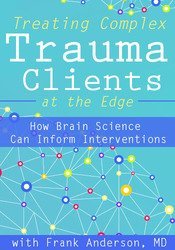





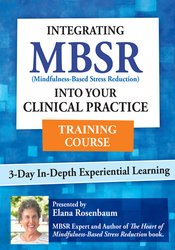
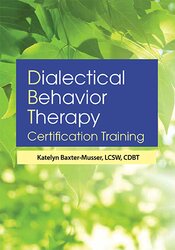

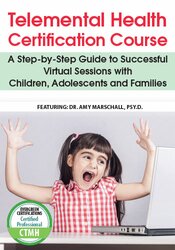
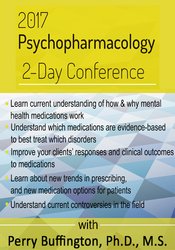
There are no reviews yet.